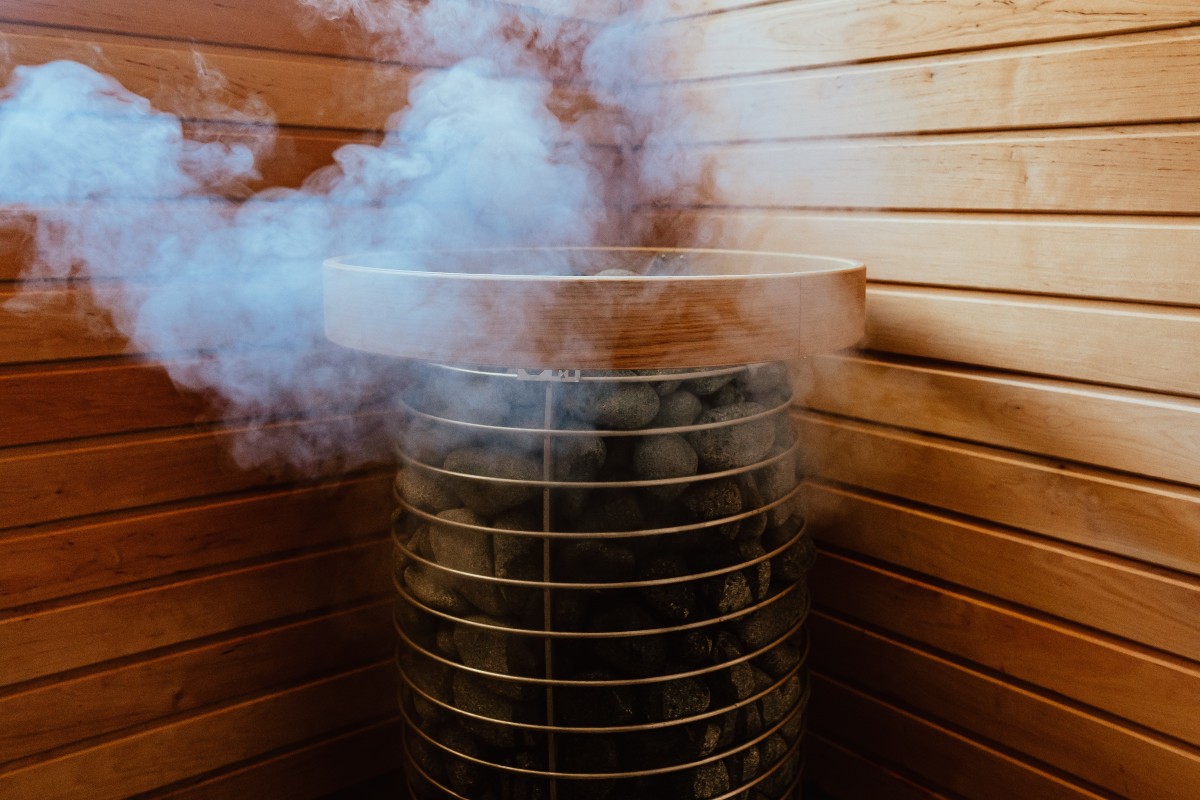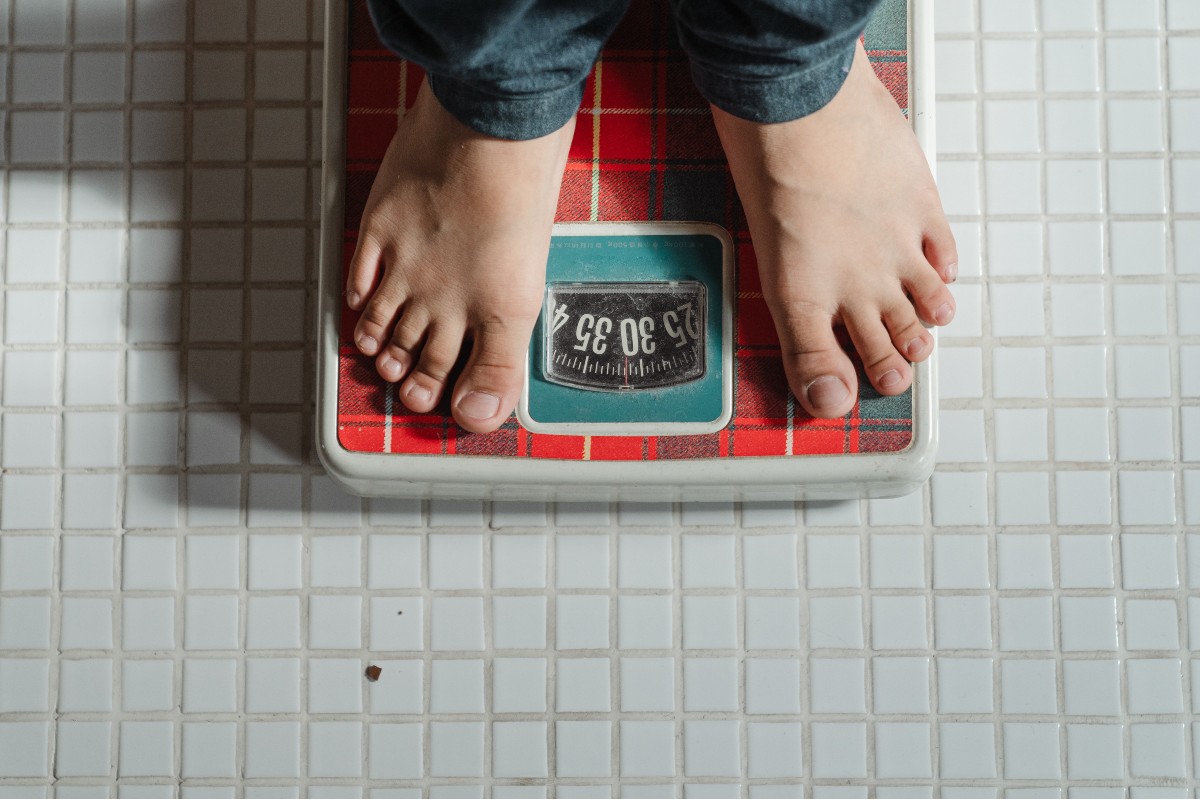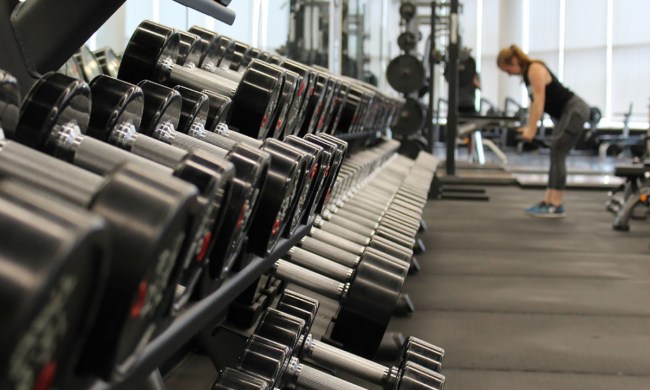For better or worse, weight loss is a common New Year’s resolution. Nearly half (48%) of the respondents in a Statista survey said that one of their 2019 New Year’s resolutions was to lose weight.
Most experts will tell you that the best way to shed pounds and maintain weight loss is through lifestyle changes, such as exercise and a diet full of lean and plant-based proteins, fruits, vegetables, and complex carbohydrates.
However, saunas, a hallmark at wellness and fitness clubs, have long been thought of as a way to speed up weight loss. The concept makes sense: Saunas are steamy. You sweat, just like in exercise, and lose weight while relaxing. Workout recovery is also counted among the many purported ice bath benefits.
“There are many benefits to both saunas and ice baths — everything from workout recovery to pain relief, immune system stimulation, and reduction of cardiovascular diseases,” says Dr. Tom Ingegno, DACM, MSOM, LAC, a doctor of acupuncture and Chinese medicine and owner and operator of Charm City Integrative Health in Baltimore, Maryland.
Can the two team up to supercharge weight loss? Here’s what the experts have to say.

What’s the deal with saunas plus cold plunges?
The sauna and ice bath hybrid is also known as a sauna plus cold plunge, for obvious reasons. A person gets in the sauna and then finishes off with a freezing-cold ice bath.
“Both systems overlap despite being on opposite sides of the temperature spectrum,” Ingegno says.
First, let’s dig into sauna benefits.
“Saunas stimulate the production of heat shock proteins,” Ingegno says. “These proteins are a body’s response to stress — in this case, the stress from excess heat. These proteins assist in immune system regulation, including the killing and reprocessing of older, weaker cells in the body. This leaves newer, younger cells that function better in the system.”
On the other hand, ice baths stimulate the production of cold-shock proteins. Ingegno explains that cold-shock proteins serve similar purposes as heat-shock ones, but they are triggered by cold exposure.
“Cold exposure is also reported to stimulate the production or re-activation of brown adipose tissue, or brown fat,” Ingegno says. “This brown fat burns white fat and can help regulate body weight.”
Infants have brown fat to regulate body temperature, but Ingegno says it’s theorized that we lose it as our muscles develop.
However, studies on Wim Hoff, who is also known as the Iceman and boasts records for exposure to the extreme cold, show he has high levels of brown fat. Ingegno notes that Wim Hoff claims he developed this brown fat through cold exposure and breathing exercises.
Do saunas and ice baths actually help you lose weight?
It’s tempting to look for a quick fix to jumpstart weight loss. However, is a sauna plus polar plunge really the answer? The truth is, there’s no data on it.
“There is much less research showing a direct link between [the] sauna, cold plunge, and weight loss,” says Andrew Herr, the founder of Fount, a personalized health and human performance company.
That said, Herr says there are benefits that could help with weight loss.
“By stressing the body, [the sauna and cold plunge] cause it to express more resilience genes and divert energy away from overactivity in the immune system, both of which can decrease inflammation,” Herr says. “This can be hugely valuable, as inflammation causes slower healing, more pain, worse sleep, and even higher anxiety levels.”
The effect on inflammation could be critical.
“Inflammation makes it harder to keep on muscle and lose fat,” Herr says. “Disrupted sleep from inflammation also makes it harder to lose weight, and removing its effects on pain and recovery make working out easier — all big wins towards keeping your weight loss journey sustainable.”
Matt Claes, the founder of Weight Loss Made Practical, also points to data that shows that, separately, sauna and ice bath benefits may assist with overall well-being. In turn, these benefits could help with weight loss.
“Sauna and ice bath treatments have been shown to improve mood, improve insulin sensitivity, improve metabolic activity, increase the amounts of certain immune cells, and more good things in studies,” Claes says.

Should you try a sauna and polar plunge for weight loss?
Experts are divided on whether you should try this method for weight loss — and most are a bit skeptical.
“Lifestyle modulation is probably the best way to deal with weight issues,” Ingegno says. “It’s a complex mix of gut health, mental health, exercise, dietary changes, and building a support system.”
Claes agrees and warns of looking for a magic way to reduce weight.
“Even in the case of the weight loss benefits of cold exposure, you have to keep in mind that this is no magic hack,” he says. “You likely still need to implement at least somewhat good habits in other lifestyle areas like nutrition to get to your weight loss goals.”
Even with all that, some people may still be interested in it. If you fit that bill, Herr has some suggestions.
“Try getting exposure to one or both two or more times per week,” Herr says. “You can sauna at any time, but make sure you don’t cold plunge right after a workout, as it can decrease the value your muscles get from the workout by 50% by impairing the signaling that leads to creating healthy, efficient muscle cells.”
Weight loss goals are common for New Year’s. Some people believe that sauna and polar (or ice bath) plunges help reduce weight, but there is no data directly linking this method to weight loss. However, saunas and ice baths do boast other benefits for mental and physical health. Lifestyle changes like diet and exercise are likely your best bet for sustainable weight loss. Genetics may also play into weight and body type, so be kind to yourself. Remember that you are more than the number on the scale or the tag on your clothes. If you’re concerned about your health and weight, speak with a healthcare provider who can provide more customized advice.




